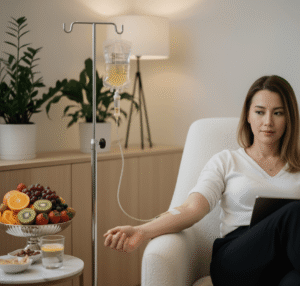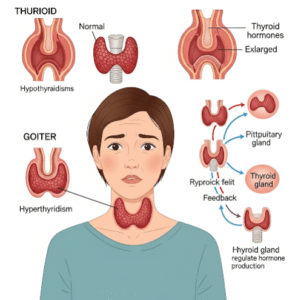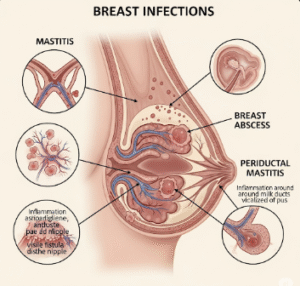Overview
Giant cell arteritis (GCA), also called temporal arteritis, is an inflammatory disease of the blood vessels, most commonly affecting the arteries in the head, particularly those near the temples. It is considered a medical emergency because untreated GCA can lead to serious complications such as permanent vision loss or stroke. In Korea, rheumatology and neurology specialists are well-equipped to diagnose and treat this condition with modern imaging, laboratory testing, and advanced therapies.
What is Giant Cell Arteritis?
Giant cell arteritis is an autoimmune-related vascular inflammation that typically affects medium and large arteries. It causes thickening and narrowing of blood vessel walls, reducing blood flow to critical areas such as the eyes and brain. GCA mainly occurs in adults over the age of 50 and requires immediate medical treatment to prevent irreversible complications.
Symptoms
Common symptoms of GCA include:
- Persistent headaches, especially at the temples
- Scalp tenderness (pain when combing hair or touching scalp)
- Jaw pain while chewing (jaw claudication)
- Vision problems (blurred vision, double vision, or sudden vision loss)
- Fatigue and fever
- Muscle aches and stiffness (often associated with polymyalgia rheumatica)
- Unexplained weight loss
Causes
The exact cause of giant cell arteritis is not fully understood, but contributing factors may include:
- Immune system malfunction, causing inflammation of blood vessels
- Genetic predisposition (family history of autoimmune or vascular diseases)
- Environmental triggers such as infections that may activate immune responses
Risk Factors
- Age over 50 (rare in younger people)
- Female gender (higher prevalence)
- Northern European ancestry (but increasingly recognized in Asian populations, including Korea)
- History of autoimmune or inflammatory conditions
Complications
If untreated, GCA can lead to severe complications, such as:
- Permanent vision loss due to optic nerve ischemia
- Stroke caused by reduced blood supply to the brain
- Aortic aneurysm or dissection
- Long-term disability due to vascular damage
Prevention
There is no guaranteed prevention for GCA, but the following may help reduce risks:
- Early recognition of symptoms and immediate medical consultation
- Regular monitoring for individuals with autoimmune conditions
- Maintaining a healthy immune system through diet, exercise, and avoiding smoking
Treatment Options in Korea
Diagnosis
- Blood tests: Erythrocyte sedimentation rate (ESR) and C-reactive protein (CRP) to detect inflammation
- Temporal artery biopsy: Gold standard for confirming GCA
- Imaging: MRI, CT angiography, or PET scans to assess blood vessel inflammation
Medical Treatment
- Corticosteroids (Prednisone): First-line treatment, started immediately to prevent vision loss
- Immunosuppressive drugs: Methotrexate or azathioprine in cases requiring steroid-sparing therapy
- Biologic therapy: Tocilizumab (IL-6 inhibitor) is increasingly used in Korea for patients with relapsing or resistant GCA
Hospital & Specialist Care in Korea
- Top centers like Seoul National University Hospital, Asan Medical Center, Samsung Medical Center, and Yonsei Severance Hospital provide expert care
- Specialized rheumatology and neurology departments coordinate advanced management
- Regular follow-up and imaging for long-term vascular monitoring
Supportive Care
- Bone protection treatment (calcium, vitamin D, bisphosphonates) to prevent steroid-induced osteoporosis
- Lifestyle modifications, including balanced diet and low-impact exercise













